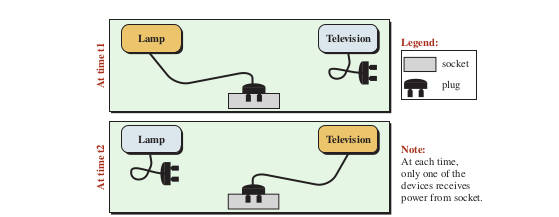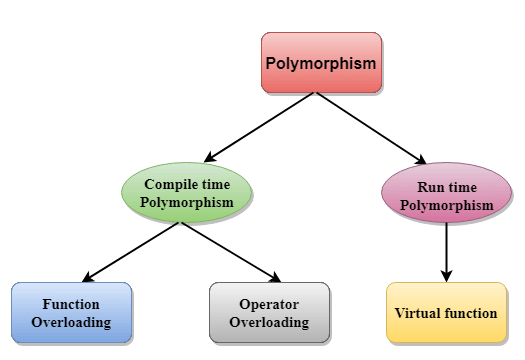Polymorphism means having many forms
Polymorphism occurs when there is a hierarchy of classes and they are related by inheritance
C++ polymorphism means that a call to a member function will cause a different function to be executed depending on the type of object that invokes the function
Polymorphism gives the ability to assign a different meaning, or purpose, to an entity according to its context
- Example; A young man at the same time can be a father, a husband, a student

